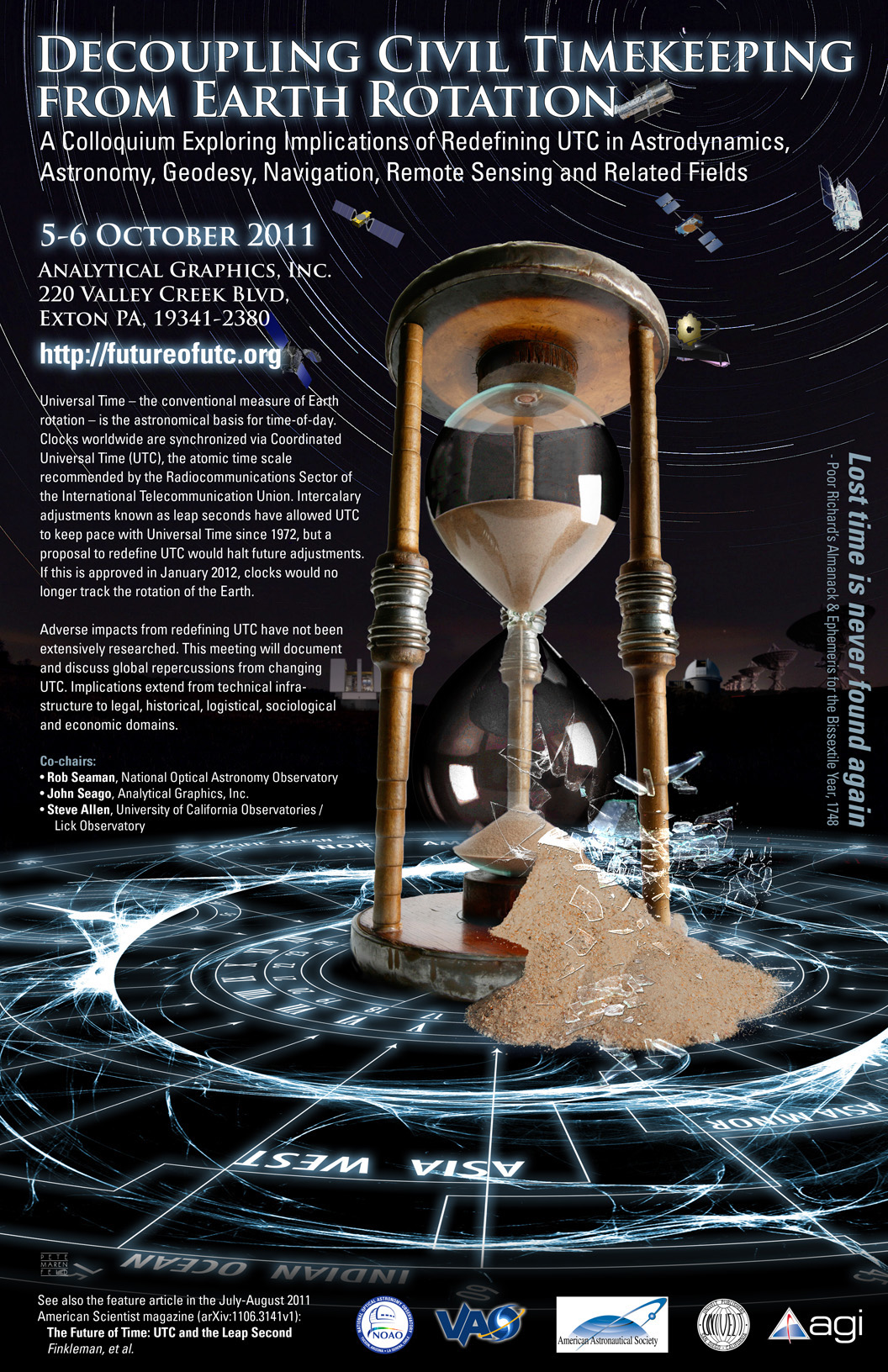This week I received an invitation to a conference considering the future of the leap second. An extra dose of moment, a leap second is occasionally introduced into modern time reckoning to keep the rotation of our planet in synch with the march of time. Because the Earth's turning has been deemed erratic compared to the atom's vibrations, the definition of a second changed several decades ago from a minuscule fraction of a 24-hour day (1/86,400) to the time it takes a cesium atom under certain specified conditions to execute a great many vibrations (9,192,631,770).

Time was, the Earth itself served as the only timekeeper people used or needed. Before anyone conceived of the planet's ceaseless motion, the spinning of the Earth on its axis changed day to night reliably enough. And the Earth's tilted orbit about the Sun brought each season round in predictable order. Not until the 18th century did scientists suspect that the Earth clock was gradually winding down, retarded by the pull of the Moon. The Moon's tidal force brakes the Earth's rotation. As a result, over the course of a long human lifetime, the length of the average Earth day may grow by as much as one-thosandth of a second.
Although atomic time is far more precise and accountable than the clockwork universe, we naturally cling to our time-honored dependence on the heavens to define the length of days, months, and years. Astronomers especially, for the pointing of telescopes and other reasons, want to keep the Earth's position in space a factor in the accepted notion of time.
The parties responsible for global time-keeping include the International Bureau of Weights and Measures and the International Earth Rotation Service. Since June 1972, these bodies have melded the two systems -- atomic and astronomical -- by adding a total of 24 leap seconds. The last such addition occurred as 2008 came to a close with a minute of 61 seconds' duration. That particular leap second may have been the last of its kind.
Next January, an organization affiliated with the United Nations, the Radiocommunication Sector of the International Telecommunications Union, will vote in Geneva on the wisdom of doing away with leap seconds once and for all. The question has been debated among professional clock-watchers in various fields for at least ten years, and the debate will no doubt intensify in the coming months. The abolition of leap seconds would eliminate the elaborate, expensive protocols for deciding upon and distributing them, but it would also disconnect our clocks from any connection with the universe at large.
